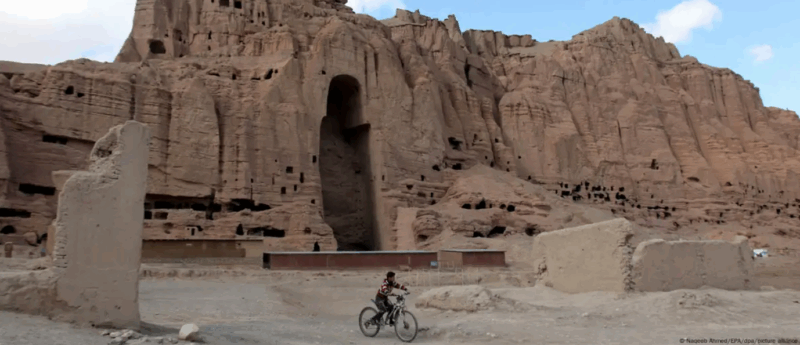
Amid many other global crises, the human rights situation in Afghanistan has been overshadowed in the international media. Millions of people continue to suffer from systemic rights violations under the Taliban-run government, a UN report has found.
Tasked with assisting the people of Afghanistan, the United Nations Assistance Mission in Afghanistan (UNAMA) monitors the human rights situation in the country, issuing regular reports. In its latest update on the human rights situation in Afghanistan, UNAMA not only documented cases of gender-based violence and public floggings, but also the growing persecution of the Ismaili community.
Ismailism is a branch of Shia Islam, while Sunni Islam is the dominant religion in Afghanistan. Most members of the Ismaili community live in the country’s northern provinces, such as Badakhshan or Baghlan. In the former, there have been at least 50 cases of members of the Ismaili community being forced to convert to the Sunni faith. Those who refused to do so were subjected to physical assaults, coercion and death threats.
“They are only accepted as Muslims if they profess the Sunni faith by force,” Yaqub Yasna, a professor and member of the Afghan Ismaili community, told DW. Yasna himself was accused of blasphemy after the Taliban takeover of 2021 because he advocated enlightenment and tolerance in society. He was forced to step down from his position at his university and went into exile for fear of reprisals.
‘Breeding ground for violence’
Yasna said that even before the Taliban’s return to power, tolerance toward the Ismaili minority in Afghanistan was limited but that the political system had at least protected their civil rights.
He said that under the Taliban, tolerance had continued to decline steadily. “When their rights are violated today, they don’t know who they can turn to. Their children are forced to profess the Sunni faith,” he explained. “Under Taliban rule, only one faith is considered legitimate. Anything that deviates from their interpretation of Islam is rejected and thus creates a breeding ground for violence against religious minorities.”
Afghan human rights activist Abdullah Ahmadi confirmed there was increasing pressure on one of the last remaining religious minorities in Afghanistan. “We have received several reports showing that children from the Ismaili community are being forced to attend Sunni-run religious schools. If they refuse to do so, or do not attend classes regularly, their families have to pay heavy fines,” he said.
Ahmadi complained that the international community had responded only hesitantly to the human rights violations in his country. He called for targeted sanctions against Taliban officials, saying they “must be held accountable.”
Nowruz holiday declared ‘un-Islamic’
Historically, the country was a significant center of religious diversity, but there are very few members of non-Muslim communities left in Afghanistan today.
The last members of the Jewish community left the country in September 2021. Those Christians who still live there tend to practice their faith in secret. And the Hazaras, another ethnic minority in Afghanistan who are predominantly Shiite, continue to be persecuted.
The Taliban only accept one interpretation of religion and have banned certain rituals and festivals, including Nowruz, which marks the beginning of spring and a new year. They declared the holiday “un-Islamic” and said that nobody in Afghanistan should observe the celebration.
Women’s rights in decline
The situation of all women is also getting worse, which means that half of society is subject to systematic oppression. According to the UNAMA report, girls continue to be “barred from participating in education beyond grade six” and there has been “no announcement made by the de facto authorities regarding the reopening of high schools and universities to girls and women.”
In the western city of Herat, the Taliban has confiscated several rickshaws and warned drivers not to transport women who were unaccompanied by a “mahram,” a close male relative.
Afghans deported from Pakistan, Iran
Despite this disastrous situation, Afghans who fled to neighboring countries are being expelled en masse. According to the United Nations, around 110,000 people, including women and children, were forced to return from Pakistan in April. Large numbers of people are also being deported from Iran.
“We live in fear of being deported to Afghanistan every day,” Afghan journalist Marzia Rahimi told DW. “What am I supposed to do with my children there?”
Rahimi said that only misery and terror awaited her in Afghanistan if she returned, explaining that she had left because she was unable to continue working as a journalist under Taliban rule and would not have been able to provide her daughter with an education.
Source : https://www.dw.com/en/rights-under-constant-attack-in-taliban-ruled-afghanistan/a-72559435







